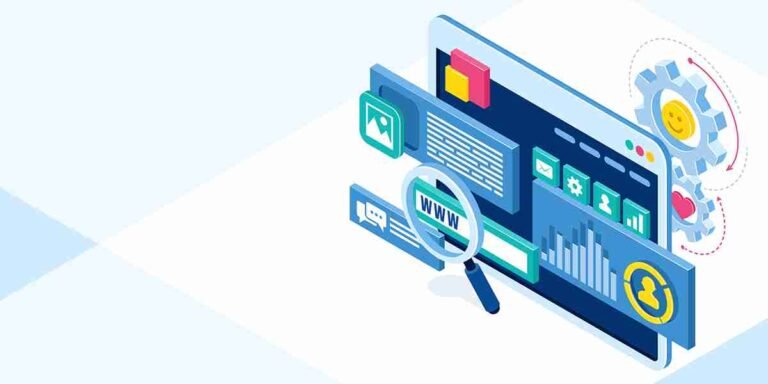The Role of IT in Smart Cities: Building Sustainable Urban Environments

In the relentless pursuit of sustainable urban development, Information Technology (IT) emerges as a cornerstone, propelling cities towards a future of intelligence, efficiency, and livability. This comprehensive exploration traverses the multifaceted realm of IT’s influence in shaping smart cities, unraveling its diverse applications, far-reaching benefits, persistent challenges, and promising future trajectories.
Unraveling Smart Cities
Defining Smart Cities
At the nucleus of urban transformation lies the concept of smart cities, where technology converges with urban infrastructure to orchestrate a symphony of efficiency, innovation, and citizen-centricity. Smart cities harness IT prowess to optimize resource utilization, bolster service delivery, and foster sustainable growth.
Key Pillars of Smart Cities
Internet of Things (IoT): A network of interconnected devices and sensors, facilitating data collection and real-time insights.
Big Data Analytics: Unleashing the power of massive datasets to derive actionable intelligence and drive informed decision-making.
Cloud Computing: Providing scalable and flexible computing resources to store, process, and analyze data.
Artificial Intelligence (AI): Empowering machines with cognitive capabilities to automate tasks, predict outcomes, and enhance operational efficiency.
Smart Infrastructure: Infusing traditional infrastructure with digital intelligence, spanning transportation, energy, water, and waste management systems.
The Transformative Role of IT in Smart Cities
Reinventing Urban Infrastructure
Smart Transportation: Implementing intelligent traffic management systems, predictive maintenance solutions, and autonomous vehicles to alleviate congestion and enhance mobility.
Smart Energy Management: Revolutionizing energy distribution and consumption through smart grids, renewable energy integration, and demand-side management initiatives.
Smart Water Solutions: Monitoring water quality in real-time, optimizing distribution networks, and minimizing water loss through leak detection technologies.
Smart Waste Management: Streamlining waste collection routes, promoting recycling initiatives, and reducing landfill overflow with IoT-powered waste bins.
Revolutionizing Public Services
Smart Governance: Digitizing administrative processes, fostering citizen engagement through e-governance platforms, and promoting transparency and accountability in decision-making.
Smart Healthcare: Enhancing healthcare accessibility and delivery with telemedicine services, remote patient monitoring systems, and predictive analytics for disease outbreak detection.
Smart Education: Empowering digital learning experiences with virtual classrooms, personalized learning platforms, and data-driven insights to improve educational outcomes
Smart Public Safety: Augmenting law enforcement efforts with video surveillance systems, predictive policing algorithms, and emergency response networks for rapid incident resolution.
Catalyzing Economic Development
Smart Economic Zones: Cultivating innovation ecosystems with co-working spaces, startup incubators, and digital infrastructure to nurture entrepreneurship and attract investment.
Digital Connectivity: Bridging the digital divide by providing universal access to high-speed internet, empowering remote work, digital entrepreneurship, and online education initiatives.
Smart Tourism: Elevating visitor experiences with augmented reality (AR) tours, location-based services, and data-driven insights to optimize tourist attractions and infrastructure.
Advantages of IT Integration in Smart Cities
Sustainability and Resource Efficiency
By optimizing resource allocation, reducing waste, and embracing renewable energy solutions, smart cities foster environmental sustainability and resilience against climate change.
Enhanced Quality of Life
Through improved public services, efficient transportation systems, and access to digital amenities, smart cities elevate the standard of living and well-being for residents.
Economic Prosperity and Innovation
By nurturing innovation ecosystems, attracting investment, and promoting digital entrepreneurship, smart cities drive economic growth, job creation, and technological advancement
Citizen Engagement and Empowerment
Empowering citizens with digital tools, participatory platforms, and transparent governance processes fosters civic engagement, collaboration, and inclusive urban development.
Challenges and Considerations
Privacy and Data Security
Safeguarding citizen data and ensuring privacy in a connected environment remains paramount, necessitating robust data protection measures and regulatory frameworks.
Digital Divide
Addressing disparities in digital access, literacy, and affordability is imperative to ensure equitable participation and access to smart city initiatives for all residents.
Interoperability and Standards
Harmonizing diverse IT systems, interoperability standards, and data exchange protocols presents challenges in integrating disparate technologies and ensuring seamless connectivity.
Future Trends and Opportunities
5G and Edge Computing
The advent of 5G networks and edge computing infrastructure promises to revolutionize connectivity, enabling faster data transmission, lower latency, and support for a myriad of IoT devices.
AI and Predictive Analytics
Advancements in AI algorithms and predictive analytics will drive smarter decision-making, proactive service delivery, and personalized experiences tailored to individual preferences.
Blockchain and Smart Contracts
Blockchain technology holds the potential to enhance transparency, security, and efficiency in various domains, including governance, finance, and supply chain management.
Conclusion
In essence, Information Technology serves as the bedrock upon which smart cities are built, driving sustainable urban development, innovation, and citizen empowerment. By harnessing the transformative power of IT, cities can chart a course towards a future of resilience, inclusivity, and prosperity, ensuring that urbanization unfolds as a force for positive change in the world.














